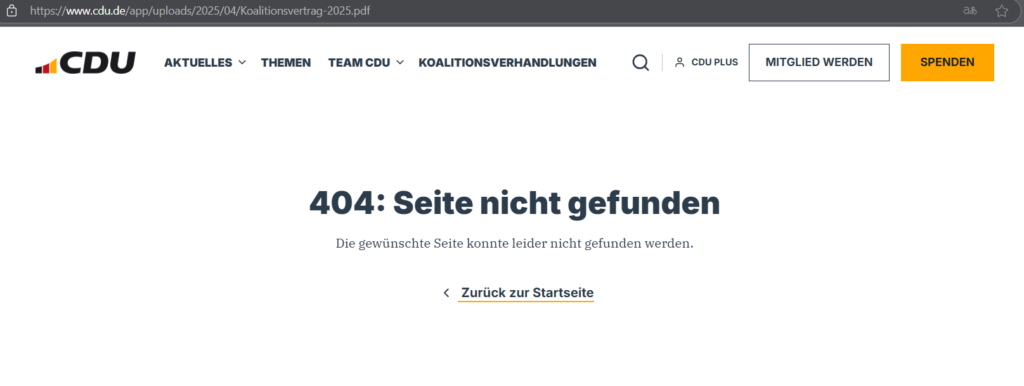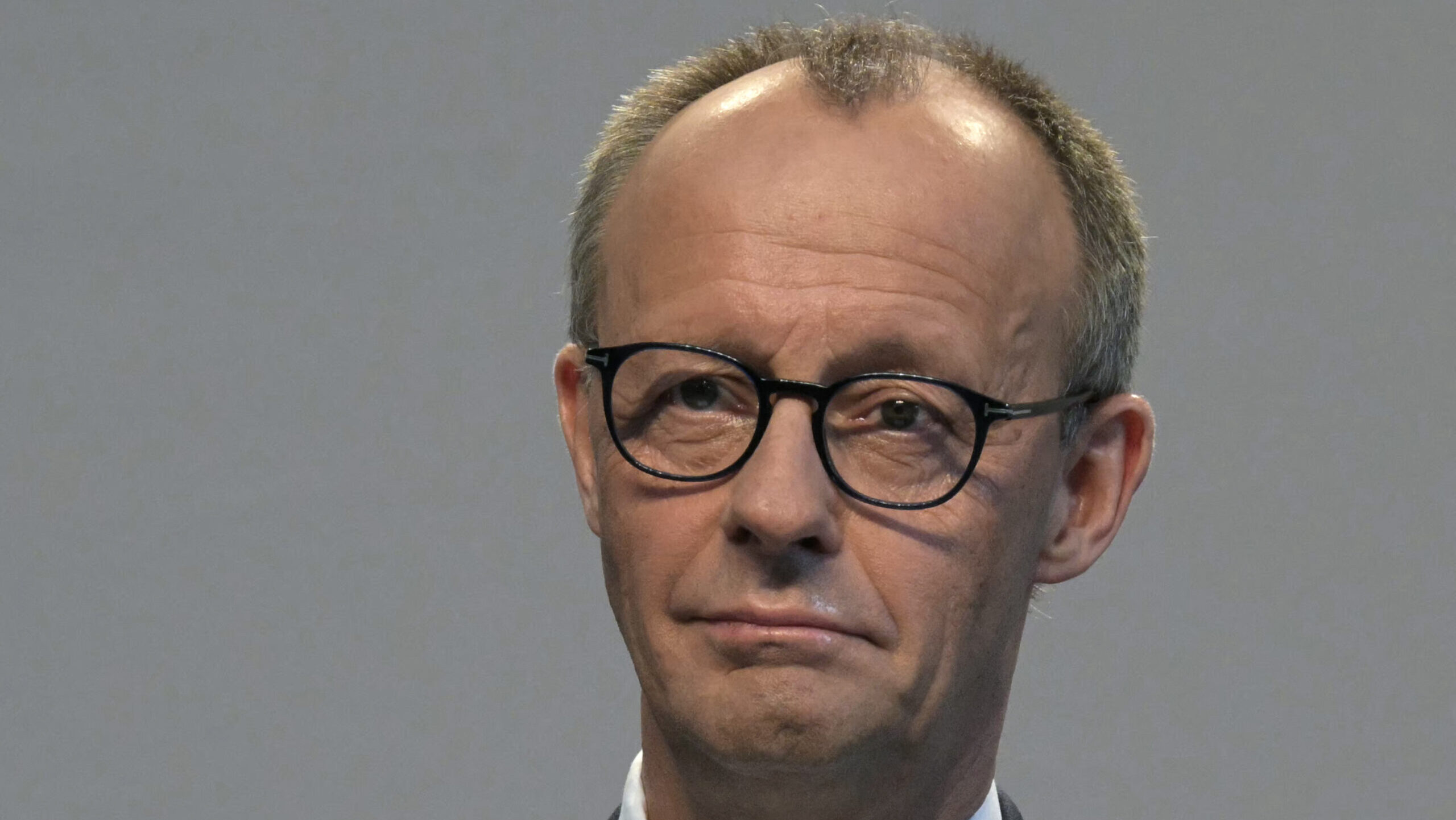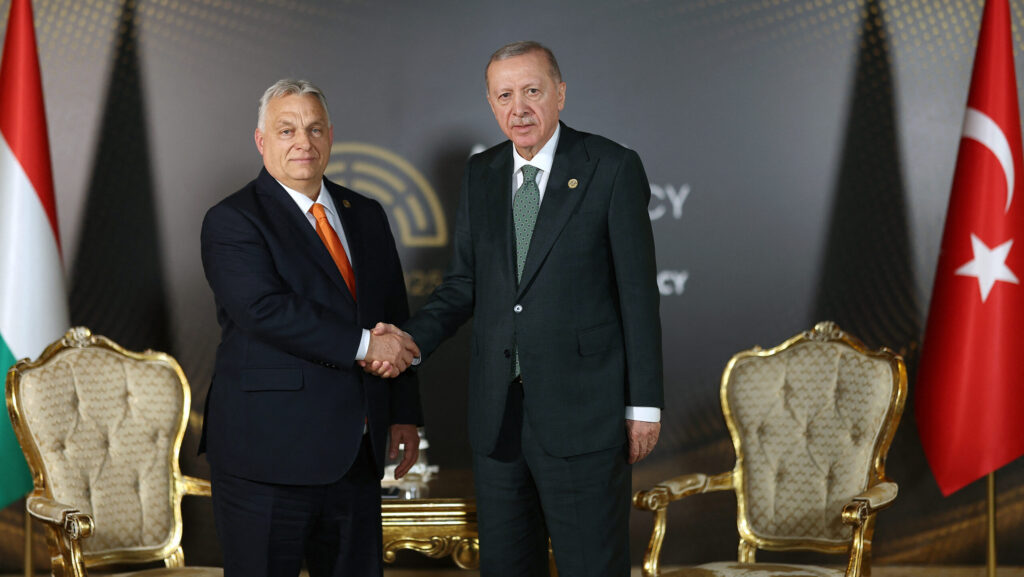The Christian Democratic Union (CDU), its regional partner, the Christian Social Union (CSU), and the Social Democratic Party (SPD) have reached a coalition agreement, the details of which were made public on Wednesday. If approved by party representatives and subsequently passed in a parliamentary vote, Friedrich Merz could soon become the Chancellor—not of the German people, but of Ukraine.
No, that is not a typo, nor have I gone completely mad. It has simply become undeniably clear, after reviewing the coalition agreement between the CDU, CSU, and SPD, that Merz has betrayed his voters on nearly every major campaign promise—while clearly putting Ukraine’s interests above those of Germany. Some might call it political treason; others might interpret it as a long-overdue stand against Russian President Vladimir Putin and his perceived ambition to eventually invade the European Union. But one thing is certain, as agreed by critics and supporters alike: the coalition agreement is historic in more ways than one.
Let us take a closer look at what was actually agreed upon. The 146-page document promises to move ‘Germany forward’ and covers many of the most pressing issues facing the country—once the economic engine of Europe, but now in its second consecutive year of recession. In trying to locate the original document, I encountered a curious difficulty: the coalition agreement was unavailable on the CDU’s website at the time of writing. Perhaps just a technical error—or perhaps they are already ashamed of it.

Fortunately, the text is accessible via the SPD’s website. The most controversial parts relate to finance, migration, EU policy, and Ukraine.
Ukraine First Policy
Starting with finance: while the incoming coalition outlines a few sensible proposals—such as reducing corporate tax by 1 per cent by 2028, cutting income tax for low- and middle-income earners midway through the legislative period, and reducing bureaucratic burdens—it also proposes establishing a commission to reform the debt brake by the end of 2025.
As previously reported by Hungarian Conservative, prior to the elections, Merz pledged that if he came to power, the ‘fantasy’ of the Social Democrats about expanding public debt would come to an end. He warned that another financial crisis was looming and insisted Germany did not need further borrowing. And yet, in March, German lawmakers passed a €500 billion defence and infrastructure package, which includes a constitutional amendment to ease the country’s fiscal rules—precisely the task of the proposed commission. Conservative voters tend to be especially cautious about government spending and rising national debt.
Among the stated goals of the package is increased military support for Ukraine in its war of self-defence against Russia. This is, in fact, one of the main reasons such a package was needed in the first place: the previous SPD–Greens–FDP coalition gave away a substantial portion of the Bundeswehr’s already outdated and incomplete arsenal to Kyiv.
While the package contains necessary infrastructure investment to restore Germany’s economic power—if any such power still exists—it is difficult to justify why any responsible leader would burden his citizens with long-term debt in order to provide military equipment to a foreign country that is neither a NATO nor an EU member. This is precisely what Hungarian Prime Minister Viktor Orbán opposes, consistently blocking common EU borrowing mechanisms aimed at funding aid to Ukraine.
‘The German coalition’s position puts Berlin at odds with Washington from day one—undermining any chance to reset transatlantic relations’
This brings us to the next point: the coalition agreement declares that the new German government will fully support Ukraine’s accession to NATO and its eventual full membership—albeit without a timeline. While it is plainly unrealistic for Ukraine to join any transatlantic or European institution in the foreseeable future, it is worth noting that this position directly contradicts that of the United States. In February, US Secretary of Defence Pete Hegseth told NATO counterparts in Brussels that the new administration sees Ukraine’s NATO membership as entirely unrealistic. Though largely symbolic, the German coalition’s position puts Berlin at odds with Washington from day one—undermining any chance to reset transatlantic relations.
The coalition agreement also falls short on immigration—one of Merz’s key campaign issues. Although it includes some welcome measures, such as suspending voluntary admission programmes, limiting family reunification, halting the fast-tracking of naturalization for migrants, and expanding law enforcement’s authority on deportations, it also proposes a quasi-entry ban in cooperation with neighbouring countries. However, since Austria and Poland have already made it clear that they will not accept asylum seekers returned from Germany, the clause effectively renders the entry ban meaningless.
Clear Message for Hungary
Finally, under the section on EU policy, the coalition agreement states:
‘The enlargement of the EU and its capacity to absorb new members must go hand in hand. Therefore, we need internal consolidation and reform of the EU, which strengthens it institutionally, at the latest with the next enlargement. The consensus principle in the European Council must not become a brake on decision-making. This also applies in principle to the remaining decisions requiring unanimity in the Council of the EU.’
The ‘next enlargement’ clearly refers to Ukraine’s fast-tracked EU accession—something strongly opposed by the Hungarian government. The clause on eliminating unanimity from Council decisions would deprive Hungary of the power to defend its national interests, especially concerning Ukraine. Orbán has promised to veto every decision related to Ukraine’s membership until a public vote is held in Hungary. That vote began this week and runs until June.
Moreover, the agreement reaffirms the importance of upholding the rule of law in the EU and backs mechanisms to enforce compliance. This is a clear reference to Hungary, which remains the only EU member state subject to the conditionality mechanism over alleged rule of law violations. Billions in EU funds owed to Hungary remain frozen by the Commission. The real reasons behind this? Hungary’s rejection of LGBTQ+ and gender ideology in schools, its strong stance against illegal migration, its consistent calls for peace in Ukraine, and its refusal to endorse Ukraine’s rapid EU accession—all positions backed by the Hungarian electorate.
Betrayal Has Consequences
In short, while Merz has failed to deliver on most of his campaign promises, he has not failed Ukraine. In fact, the CDU leader has evidently prioritized Ukraine’s interests over those of his own country. And for that, he is already paying a price. According to the latest Ipsos poll, the right-wing Alternative für Deutschland (AfD) is now the most popular party in Germany, standing at 25 per cent—one point ahead of the CDU. In the early elections in February, the CDU came first with 28.5 per cent, while AfD placed second with 20.8 per cent. The implication is clear: nearly every disillusioned CDU voter has shifted to AfD. Meanwhile, Merz’s personal approval rating has dropped to 25 per cent—a 10-point decline since February.
Wahlrecht.de on X (formerly Twitter): "Sonntagsfrage Ipsos zur Bundestagswahl * AfD 25 % | CDU/CSU 24 % | SPD 15 % | GRÜNE 11 % | DIE LINKE 11 % | BSW 5 % | FDP 4 % | Sonstige 5 %➤ Übersicht: https://t.co/Gzilw3J3L9➤ Verlauf Ipsos: https://t.co/jelulA5bur pic.twitter.com/Lqy5xdgnAv / X"
Sonntagsfrage Ipsos zur Bundestagswahl * AfD 25 % | CDU/CSU 24 % | SPD 15 % | GRÜNE 11 % | DIE LINKE 11 % | BSW 5 % | FDP 4 % | Sonstige 5 %➤ Übersicht: https://t.co/Gzilw3J3L9➤ Verlauf Ipsos: https://t.co/jelulA5bur pic.twitter.com/Lqy5xdgnAv
Despite the best efforts of the CDU, SPD, and much of the German and European mainstream to demonize and marginalize AfD, Alice Weidel’s party is growing stronger by the day. That is largely because, unlike Merz, Weidel and the AfD put Germany—and the German people—first. In contrast, Friedrich Merz has chosen to be the Chancellor of Ukraine.
Related articles:








